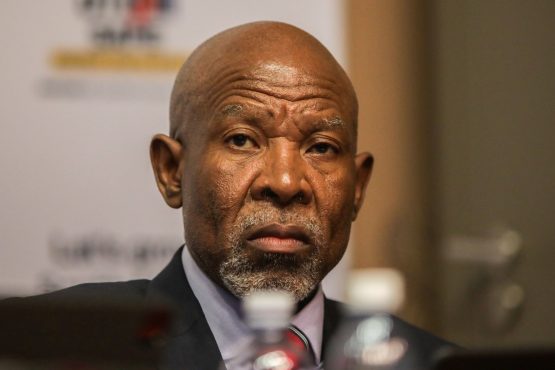Kganyago urges power, transport deregulation

South Africa’s central bank Governor Lesetja Kganyago called for sweeping reforms to macroeconomic policies to boost economic growth, and lessen exchange rate volatility and sovereign risk.
Proposed changes include structural reforms, deregulation of the nation’s transport and electricity sectors, lowering the inflation target and a shift back to predictable, transparent fiscal policy rules.
“With the rise in debt created by our efforts to confront weakening growth and failures of state enterprises, there is little chance of improving credit quality without new rules and more strategic use of macroeconomic policy,” Kganyago said in a speech at the Peterson Institute for International Economics in Washington Tuesday.
Lowering the inflation target to 3%, the bottom of the current range, will be a “major benefit to fiscal policy” and economic growth, the governor said. It will also reduce the potential for an upward drift in the real exchange rate and cut loan-service costs for the country’s over-indebted public sector, he said.
Public finances in Africa’s most industrialised economy were hard hit by a decade of graft, known locally as state capture. A full house of junk credit ratings and rising government debt following a R254 billion relief package for power utility Eskom are adding to the strain.
Meanwhile severe power rationing because of Eskom’s inability to meet demand and logistics-network constraints are eroding the nation’s economic-growth prospects, disrupting local supply chains and stoking inflation.
That’s spurring investors to place a premium on the local currency. The rand has weakened more than 7% against the dollar the year, making it the second worst performer in a basket of 16 major currencies tracked by Bloomberg.
Few friends
The South African Reserve Bank’s approach to pursuing better inflation outcomes that included highlighting constraints that lie outside the scope of monetary policy hasn’t won it many friends “but has helped to foster a better public discussion about the challenges holding back our economy,” Kganyago said.
His renewed call to lower the inflation target will probably be met with criticism by detractors of the central bank, including some politicians and labor groups, who have said it should do more to support South Africans and the domestic economy.
In January, Gwede Mantashe, the governing African National Congress’s chairman, said the party agreed to change the central bank’s mandate to include job creation, a prospect that rattled investors worried that modifications would weaken the Reserve Bank’s independence and commitment to its inflation target. President Cyril Ramaphosa later downplayed suggestions that the change was imminent, while Finance Minister Enoch Godongwana said an explicit mention of jobs in the central bank’s remit won’t affect its operations.
The central bank has lifted the key interest rate by 425 basis points since November 2021 in an attempt to tackle the worst global inflation shock in a generation. At 7%, it remains above the 4.5% midpoint of the target range at which policymakers prefer to anchor inflation expectations though it’s “off the highs of a few months ago and compares favorably” to the country’s emerging-market peers, Kganyago said.
Still, average price-growth expectations for 2023 increased to 6.3% in the first quarter from 6.1% previously, according to a survey of business people, labor unions and households conducted by the Bureau for Economic Research. That prompted the central bank to lift borrowing costs by a bigger-than-expected 50 basis points on March 30, when it raised its inflation forecast to 6% from 5.4%.
Forward-rate agreements used to speculate on borrowing costs show traders are pricing in a quarter-point hike in May, which would take the key rate to 8%.

